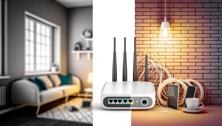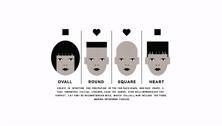Understanding Patient-Centered Care
Patient-centered care is a holistic approach that takes into account not just the physical health of the patient, but also their emotional, social, and psychological well-being. It involves actively involving the patient in their own care, taking their input and preferences into consideration, and ensuring that their needs are met throughout the healthcare journey.,This approach recognizes that each patient is unique and that their preferences and priorities may differ. It aims to provide personalized care that takes into account their individual circumstances, beliefs, and goals. By doing so, patient-centered care enhances the overall quality of care provided, leading to better health outcomes and patient satisfaction.
The Impact of Patient-Centered Care on Medical Device Selection
When it comes to selecting medical devices, a patient-centered approach ensures that the devices chosen meet the specific needs and preferences of the individual patient. This involves considering factors such as the patient's medical condition, lifestyle, and personal preferences.,For example, if a patient has mobility limitations, selecting a wheelchair that is both comfortable and easy to maneuver becomes crucial. Similarly, if a patient has a chronic condition that requires frequent monitoring, choosing a medical device that is user-friendly and allows for easy data collection can greatly enhance their experience.,By involving patients in the selection process and considering their unique needs, healthcare providers can ensure that the devices chosen are not only effective but also well-suited to the individual patient. This personalized approach improves patient satisfaction, adherence to treatment plans, and ultimately, health outcomes.
Challenges and Considerations in Implementing Patient-Centered Care in Medical Device Selection
While patient-centered care is widely recognized as a crucial aspect of healthcare, implementing it in medical device selection can pose some challenges. One key challenge is the availability of options that truly cater to the diverse needs of patients.,Medical device manufacturers and healthcare providers need to work together to develop and offer a wide range of options that consider different patient populations, diverse cultural backgrounds, and varying levels of technological literacy.,In addition, healthcare providers need to be adequately trained and educated on patient-centered care and the importance of considering patient preferences in medical device selection. This requires a shift in the traditional approach of focusing solely on the clinical effectiveness of devices, to also considering the patient's experience and satisfaction.,By addressing these challenges and incorporating patient-centered care principles into the selection process, healthcare providers can optimize patient outcomes and ensure that the devices chosen truly meet the needs of each individual.
Conclusion
Patient-centered care is of utmost importance in medical device selection. By considering the individual needs, preferences, and values of patients, healthcare providers can ensure that the devices chosen enhance the overall quality of care provided. This approach leads to better patient outcomes, increased satisfaction, and a more personalized healthcare experience.









